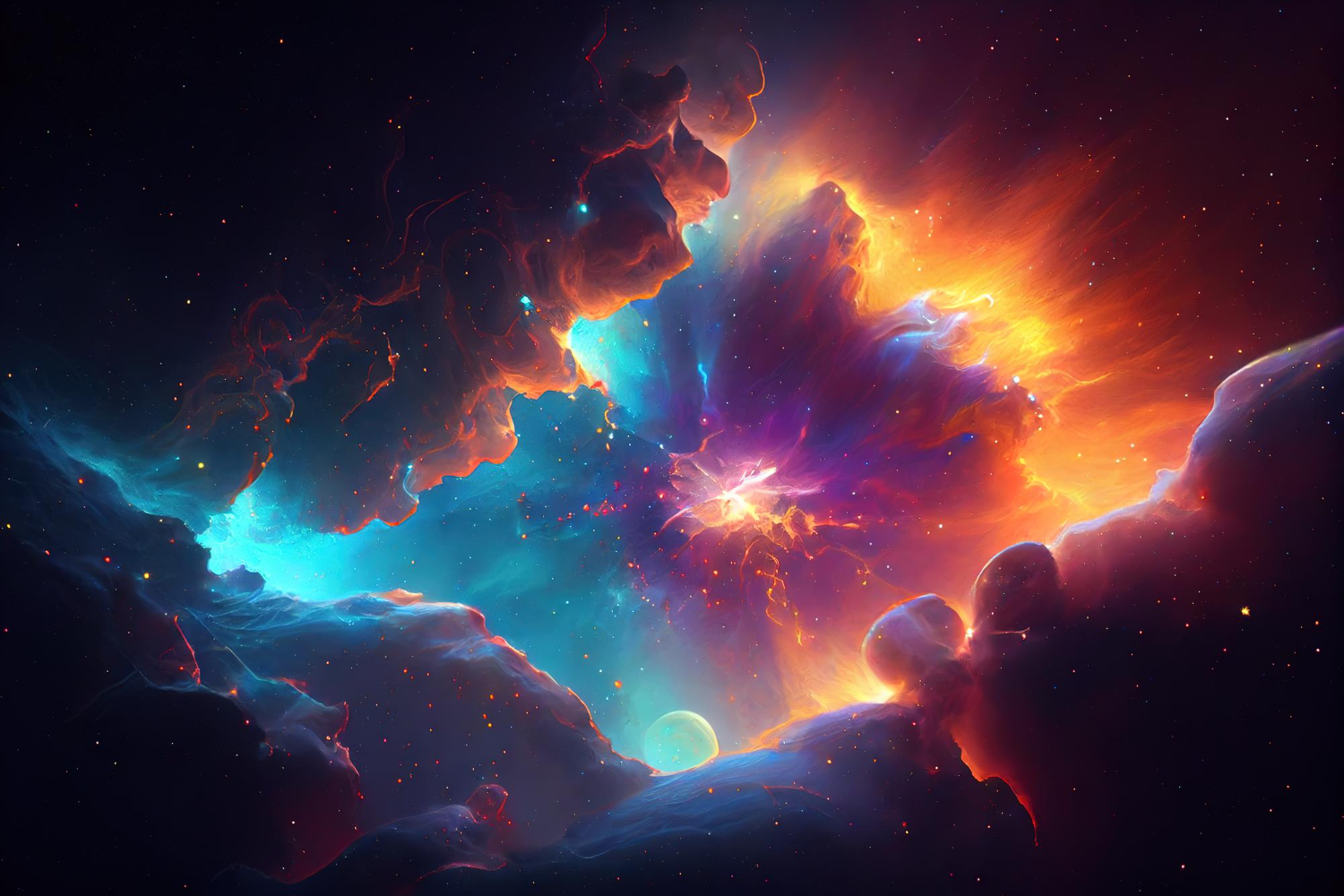Welcome to a captivating journey through the depths of the universe, where galaxies twinkle, stars explode, and distant worlds await our exploration. Astronomy, the science of celestial bodies and the cosmos, is one of humanity's oldest and most intriguing disciplines. In this article, we invite you to see the universe with fresh eyes and embark on a quest to discover the wonders of the cosmos.
Stardust and the Birth of Stars
Our story begins billions of years ago with the Big Bang, a monumental event that set time and space into motion, laying the foundations for the universe as we know it today. The first elements were born - hydrogen, helium, and a trace of lithium - and scattered throughout the vastness of space.
This cosmic mix of dust and gas began to condense and coalesce, drawn together by the force of gravity, forming massive gas clouds. Within the hearts of these clouds, stars were born – colossal thermonuclear reactors radiating light and warmth into the darkness of the universe.
The Dances of Planets and their Secrets
In our own solar system, a colorful troupe of planets emerged. Each possesses a unique personality shaped by its position, atmosphere, and history. Mercury, closest to the Sun, is a scorching rocky orb, while distant Neptune is shrouded in icy winds.
The red planet Mars, once speculated as a possible refuge for extraterrestrial life, captivates us with its rugged, dusty surface and enigmatic channels. And then there's Jupiter, the king of the solar system, with its gigantic storms and moons like Europa and Io, a true treasure trove for exploring the potential for life.
Galaxies - Islands of Stars
Yet, not only our Sun and its companions shape the universe. Galaxies, massive islands of stars, dust, and dark matter, traverse the cosmos. One such galaxy is our Milky Way, a grand carousel of stars majestically moving through the darkness.
However, not all galaxies are the same. There are spiral galaxies with their spiraling arms, where young stars are born, and elliptical galaxies that harbor older populations of stars. Then there are distant quasars, massive black holes at the centers of remote galaxies, devouring matter and unleashing unimaginable energies.
The Fate of Stars - Supernovae and Black Holes
Stars live and die much like humans. Through nuclear fusion, they transform hydrogen into helium, generating light and warmth. But eventually, they exhaust their nuclear fuel and dramatically collapse under their own weight, giving rise to supernovae - immense explosions that momentarily outshine entire galaxies.
What remains after a supernova can either be a neutron star or a black hole. Neutron stars are incredibly dense remnants of stars, while black holes are so massive that not even light can escape their gravitational pull.
The Search for Life in the Universe
One of astronomy's most compelling questions revolves around the search for extraterrestrial life. Humanity has directed its eyes and ears to the cosmos, hoping to detect signals from intelligent civilizations, while space probes are dispatched to potentially habitable worlds.
The discovery of exoplanets - planets beyond our solar system - has intensified the hunt for habitable worlds. Each finding brings us closer to answering the question, "Are we alone?"
The Future of Astronomy - New Horizons
The future of astronomy is more exhilarating than ever before. With the aid of ever-advancing telescopes and instruments, we can observe the universe on a scale that our ancestors could not have fathomed.
Planned space telescopes, such as the James Webb Space Telescope, will grant us an even clearer view of stellar birth, galaxy formation, and the atmospheric compositions of exoplanets. And who knows what surprises the future holds in store?
Conclusion - The Endless Journey Continues
Our journey through astronomy is far from over. As we explore the wonders of the universe, we are captivated by its infinite diversity and beauty that surrounds us. Astronomy is a voyage of discovery, curiosity, and awe, revealing how small we truly are amidst the vastness of the cosmos.
Let us move forward together, exploring new horizons and embracing the unknown with open minds. For science is not just a means to find answers; it is also a journey leading us deep into the mysteries of the universe. The stars await our discovery, and who knows what adventures lie ahead?
The universe calls to us - let us collectively respond and continue to explore the wonders of astronomy!


